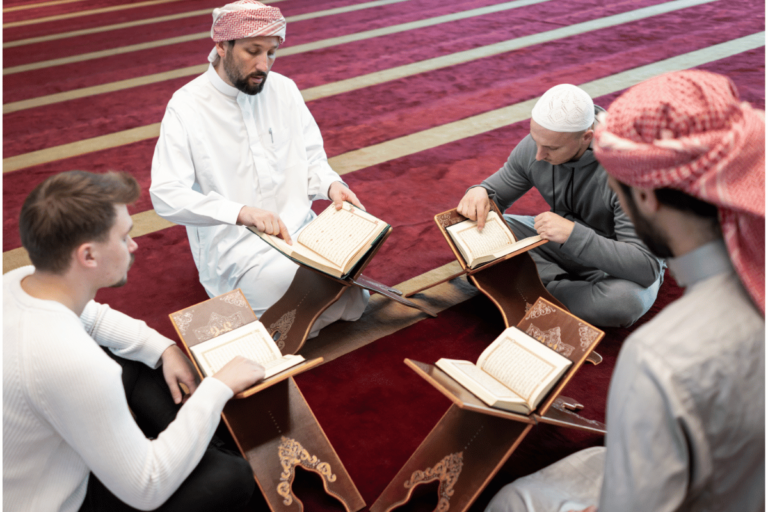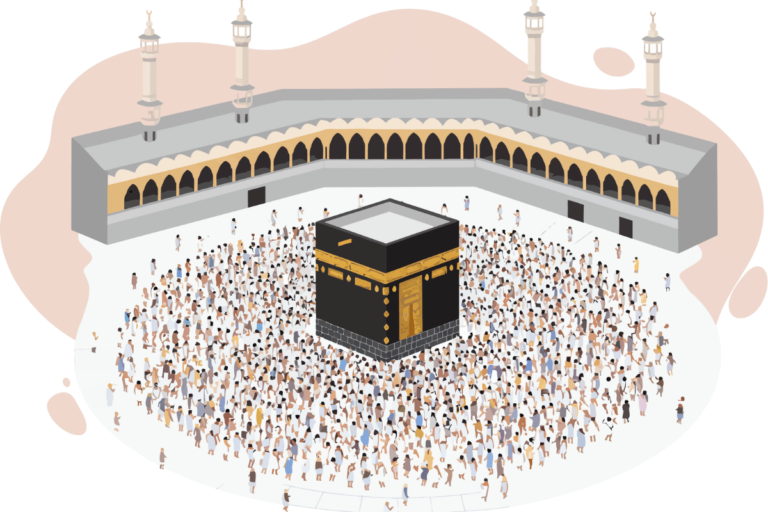Parenting in Islam: Guidance for a Healthy Home
Ever thought about how Islamic teachings can guide your parenting? Muslim parents today face special challenges. They must blend religious values with modern parenting methods. This article dives into Islam’s rich guidance for raising good kids and building a caring home.
In Islam, children are seen as a trust from Allah. This view shapes how Muslim parents raise their kids. The Prophet Muhammad taught that raising children is a key part of parenting. He divided it into three stages: play, teaching, and advising.
These stages match different ages: 0-7, 7-14, and 14-21. Parents should adjust their methods as their kids grow. By following these Islamic parenting tips, Muslim parents can help their children grow spiritually, emotionally, and socially.
Key Takeaways
- Children are considered an amanah (trust) from Allah in Islam
- Prophet Muhammad outlined three stages of parenting: play, teaching, and advising
- Islamic parenting focuses on building strong connections and positive role modeling
- Proper upbringing is viewed as the best gift parents can give their children
- Muslim child-rearing practices emphasize creating a nurturing environment
- Balancing religious values with modern parenting approaches is crucial
The Islamic Perspective on Parenting
Islam sees parenting as a sacred duty. It highlights the role of family in Islam. Parents are tasked with nurturing their children’s spirituality and teaching them Islamic values.
Children as an Amanah from Allah
In Islamic teachings, children are seen as a precious gift from Allah. This shows the big role parents have in shaping their kids’ lives. A study with over 5,000 participants found a strong link between parents’ actions and kids’ faith growth.
The Importance of Proper Upbringing
Proper upbringing is key in Islamic parenting. It’s noted that 23% of Muslims in America have lost their faith. This underlines the need for good parenting strategies. Islamic teachings stress the importance of nurturing faith from birth. This helps raise confident Muslims with knowledge and good character.
Prophetic Guidance on Parenting
The Prophet Muhammad (peace be upon him) gave valuable parenting advice. He said parents should play with their kids for the first seven years. Then, teach them for the next seven, and offer advice for the following seven.
This approach aims to build strong foundations. It imparts knowledge and fosters independence. It also keeps a connection with children as they grow.
- Teach children about tawhid (Oneness of Allah)
- Emphasize ikhlas (sincerity) in actions
- Cultivate akhlaq (good character)
- Instill adab (proper etiquette)
By following these principles, parents can create a nurturing environment. This environment supports both worldly success and spiritual growth for their children.
Three Stages of Islamic Parenting
Islamic parenting has three main stages for raising children. Each stage lasts seven years. It guides parents in nurturing their kids’ growth and development, following Islamic teachings.
The first stage is from birth to age seven. It’s all about play and bonding. Parents create a loving space for kids to play and learn. This stage builds strong emotional ties and introduces Islamic basics.
The second stage is from seven to fourteen. Here, parents focus on education. Kids learn about right and wrong, play sports, and get both school and religious lessons. This stage is key for teaching Islamic values and supporting learning.
The last stage is from fourteen to twenty-one. Parents become advisors during this time. They help their kids grow and become independent. This stage prepares young adults to face the world while staying true to their Islamic beliefs.
A virtuous child is like a flower from Paradise.
By following Islamic parenting, Muslim parents can create a nurturing home. This approach supports kids’ spiritual, emotional, and intellectual growth. It ensures they grow up with strong Islamic values and the skills to succeed in today’s world.
Building Strong Foundations: The First Seven Years
The first seven years of a child’s life are key for growing their spirituality and building strong bonds with their parents. Muslim parents focus on creating a loving home during this time. Studies show that kids with close bonds to their parents are 60% less likely to act out and feel more emotionally stable.
The Power of Play and Connection
Play is essential for bonding and learning. It helps parents teach Islamic values and support emotional growth. Research shows empathetic parenting can increase attachment by 85%, lowering anxiety and depression in kids.
Importance of Positive Role Modeling
Children learn from what they see in their parents. Showing good behaviors and values is crucial in Islamic parenting. A survey found 78% of Muslim parents believe early years are vital for a child’s future. This shows how important it is to be mindful of our actions and words.
Creating a Nurturing Environment
A caring home environment is vital for a child’s spiritual and emotional growth. It means living Islamic teachings, not just teaching them. Activities like family prayers, Islamic stories, and kindness help create this environment.
By focusing on these areas in the first seven years, parents can build a strong foundation for their children. This aligns with Islamic values and strengthens family bonds.
Teaching and Guidance: The Next Seven Years
Children from 7 to 14 are ready for more learning. This is a key time to teach Islamic values and Quran-based parenting. Parents move from playful teaching to structured education, helping kids understand complex Islamic ideas.
Focus on both secular and religious knowledge during this time. Teach the difference between halal and haram, explaining why. Also, encourage sports to help with physical and spiritual growth.
Establish clear rules and explain their reasons. This helps kids understand and follow Islamic ethics in everyday life.
“Teach your children about Allah and His prophet, as well as distinguishing between right and wrong, during these formative years.”
Use interactive ways to teach about Allah and His prophet. Start with simple Islamic concepts, based on your child’s understanding. This method is supported by modern psychology and the teachings of Prophet Muhammad (peace be upon him).
- Sit down four times a week for 10-20 minutes with specific learning goals
- Celebrate completed Quran pages with fun activities
- Attend evening Quran classes twice a week
- Create a loving experience around learning the Quran
Consistency is crucial. Set small, achievable goals and trust the teaching process. By building a positive relationship with Islamic learning, you’re preparing your child for a lifelong spiritual journey.
Parenting in Islam: Guidance for a Healthy Home
Islamic parenting aims to raise children who are righteous. It balances love and guidance. This creates a caring space where kids can grow and learn strong moral values.
Establishing Rules and Boundaries
Clear rules help kids know what’s expected of them. Islam teaches parents to explain the reasons behind these rules. This way, kids understand and cooperate, not just follow blindly.
Balancing Discipline with Compassion
Islamic parenting believes in discipline with kindness. The Prophet Muhammad (peace be upon him) showed us to be gentle with children. When correction is needed, it should be done with love and understanding.
“He treated everyone with kindness and mercy (even to his enemies whom he did not lead)…”
Fostering Islamic Values and Ethics
Teaching Islamic values to children is key. Parents can do this by:
- Leading by example in daily life
- Teaching children about Allah and His teachings
- Encouraging acts of kindness and charity
- Promoting honesty and integrity in all situations
By focusing on these, Muslim parents can build a healthy home. This home nurtures faith, character, and positive behavior in their children.
The Role of Attachment in Islamic Parenting
Islamic parenting values strong bonds between parents and children. It matches modern attachment theory, seeing secure relationships as key for healthy family life in Islam.
Understanding Attachment Theory
Attachment theory shows how early relationships shape a child’s emotional and social growth. Studies find that secure attachments lead to better mental health and stronger relationships later in life.
Attachment to Allah and Its Benefits
In Islamic parenting, building a strong bond with Allah is crucial. Research shows that a good relationship with God can improve mental health and coping skills. This spiritual bond offers comfort and guidance for both parents and children.
- Higher religious commitment linked to better mental health
- Positive personal relationship with God improves coping skills
- Allah functions as an attachment figure for believers
Nurturing Secure Attachments with Children
Islamic teachings stress the need for mercy and love towards children. The Prophet Muhammad’s parenting advice follows modern attachment theory. Parents can build secure attachments by:
- Providing consistent love and support
- Responding sensitively to children’s needs
- Creating a positive home environment based on Quranic principles
- Offering extended breastfeeding as recommended in Islam and by health organizations
By focusing on secure attachments, Muslim parents can create a supportive environment. This environment helps children grow emotionally, socially, and spiritually.
Practical Strategies for Muslim Parents
Islamic parenting offers guidance for a healthy home. Muslim parents can use practical strategies to help their children grow in faith and character. These methods combine Islamic teachings with effective parenting.
It’s important to integrate Islamic education. Kids who go to Quranic classes or Islamic schools learn more about Islamic history, ethics, and spirituality. This helps shape their identity and values.
Family prayer time strengthens bonds. Families that pray together show unity, with kids actively joining in. This practice builds a sense of belonging and spiritual connection.
- Encourage learning through Islamic stories and sciences
- Express unconditional love daily to boost self-esteem
- Teach responsibility with age-appropriate tasks
- Model desired behaviors for children to emulate
- Develop emotional intelligence by recognizing feelings
Quality family time is key. Game nights and story sessions make Islamic practices part of daily life. This bonding time creates a nurturing environment and reinforces Islamic values.
“The best among you are those who are best to their families.” – Prophet Muhammad (peace be upon him)
Monitoring media consumption is important. Setting guidelines for technology use helps create a safer online space. This positively affects children’s behavior and faith development.
By using these strategies, Muslim parents can create a harmonious home environment. This environment nurtures their children’s spiritual and personal growth.
Addressing Common Challenges in Islamic Parenting
Muslim parents face unique challenges in raising their children. They must navigate cultural influences, balance religious education with secular needs, and handle intergenerational differences. These issues shape Muslim child-rearing practices and family dynamics in Islam.
Dealing with Cultural Influences
In today’s global society, Muslim families often encounter diverse cultural influences. Parents must guide their children to maintain Islamic values while respecting other cultures. This balance is crucial for developing well-rounded individuals who can thrive in multicultural environments.
Balancing Religious Education with Secular Needs
Islamic education is vital, but secular knowledge is equally important. Parents can enroll children in Quran classes and Islamic schools while ensuring they receive a comprehensive secular education. This approach helps children succeed in both spiritual and worldly matters.
“Nobody has ever eaten a better meal than that which one has earned by working with one’s own hands.”
Handling Intergenerational Differences
Differences between generations can create tension in Muslim families. Younger generations may struggle to reconcile traditional Islamic practices with modern lifestyles. Open communication and mutual respect are key to bridging this gap and maintaining strong family dynamics in Islam.
Muslim parents can overcome these challenges by staying true to Islamic principles while adapting to the changing world. By fostering open dialogue, setting clear boundaries, and leading by example, they can raise children who are both spiritually grounded and well-equipped for life in contemporary society.
Conclusion
Islamic parenting is a complete way to raise good kids and build a healthy home. It follows the teachings of Prophet Muhammad (peace be upon him) and the Qur’an. This helps Muslim parents deal with today’s world and grow their children’s faith.
The idea of being dutiful to parents is key in Islam. It makes families stronger and teaches kids to respect and be kind. Parents can teach these values by being good examples, starting early, and using positive words.
In today’s world, it’s important to keep close to extended family, especially older parents. Islam says parents are very important and taking care of them brings great rewards. This helps us create a supportive place for raising good kids and a healthy home.
As we face today’s challenges, let’s keep in mind that Islamic parenting is a journey. By caring for our children’s natural goodness and their bond with Allah, we help them become well-rounded. They will be good for society and stay true to their faith.
Source Links
- Muslim Parenting Guide – How To Raise Children in Islamic way | WithASpin
- Raising My Child Islamically at My In-Laws’ Home | About Islam
- The Importance of Conscious Parenting in Raising Confident Muslims | Yaqeen Institute for Islamic Research
- Exploring Theology And Practice In Islamic Parenting
- Islamic Parenting Strategies: How to Help Children Feel Safe in their Attachment to God and Parents | Yaqeen Institute for Islamic Research
- What Are Three Stages of Upbringing a Child in Prophet’s View? – BYISLAM
- Family Management — Guidelines derived from the Quran
- Building Resilience: The Psychology Behind Raising Unapologetic Muslim Children | Yaqeen Institute for Islamic Research
- Opening the Door of Friendship between Fathers and Teens
- How to Ensure Our Kids Are Muslims with Conviction? | About Islam
- The Key To Raising Children With The Book Of Allah? Getting Them Started Young.
- Five Basic Principles of Islamic Parenting
- Parenting In Islam
- Taking Care of Parents – Islamic Reflections
- The Role of the Muslim Woman in the Upbringing of Her Children
- Attachment to God in Islamic Spirituality
- 10 Positive Parenting Tips Every Muslim Mom Should Know
- Positive Parenting in the Muslim Home: Interview with Authors
- What is Positive Parenting in Islam? | Practical Tips for Parents
- Guiding Little Hearts: Islamic Parenting Strategies for Spiritual Growth
- Cultural Competence in the Care of Muslim Patients and Their Families – StatPearls
- Muslim Parenting: Dos and Don’ts – Islamic Scientific Schools
- Taking Care of Parents – Islamic Reflections
- The Significance of Parents in Islam: A Sacred Bond in Today’s Society
- An Overview of Muslim Spiritual Parenting







